Introduction
From April 23 to 25, 2025, the bay of Cala Llonga in Ibiza hosted the 16th edition of the International Music Summit (IMS), reaffirming its status as one of the most influential gatherings for the global electronic music industry. Organized in collaboration with AlphaTheta and held at the Mondrian & Hyde Ibiza resorts, the summit brought together artists, industry leaders, entrepreneurs, and visionaries from all over the world.
This year’s central theme, Intergenerational Exchange, was chosen in recognition of the rapid and frequent changes affecting the industry, particularly in the post-pandemic era. The IMS committee felt it was crucial to encourage dialogue between today’s industry leaders and the rising protagonists of tomorrow, ensuring that the future of electronic music remains innovative and inclusive.
There was a deep sense of pride among the IMS organizing team as they reflected on the journey: 18 years after the initial idea behind IMS was born, it is now attracting a new generation of talents and professionals. This milestone is seen as a strong sign that a healthy industry can foster both continuity and constant evolution, keeping pace with a sector that is always moving forward.
In addition to thought-provoking sessions and panel discussions, the summit offered rich networking opportunities and entertainment highlights, culminating with the iconic IMS Dalt Vila closing event on April 25, set in the UNESCO World Heritage site of Ibiza’s old town.
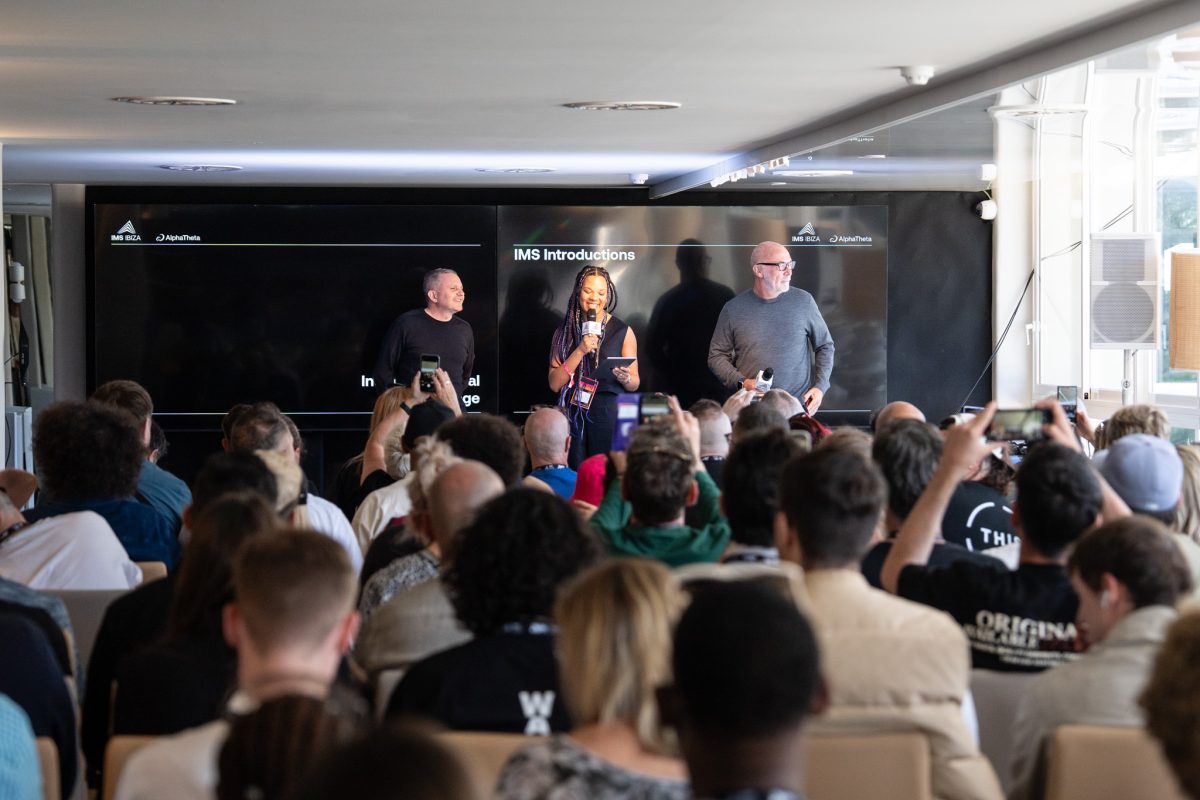
Intergenerational Exchange by Elijah
Setting the tone for IMS Ibiza 2025, no one could embody the theme of Intergenerational Exchange better than Elijah. Known for his bold and disruptive perspectives, Elijah opened the summit by addressing a key frustration: “The way people talk about ‘young people’ in this industry frustrates me,” he stated. Through his unique journalistic style — characterized by straightforward, introspective “yellow and black block” messages — Elijah challenged the audience to rethink conventional narratives surrounding the new generation’s role in the music industry.
Focusing particularly on independent artists, he emphasized the need for greater realism, productivity, and above all, awareness of the true dynamics at play. Elijah reminded attendees that success today can happen anywhere and at any moment, driven by openness to new paths: whether through innovative content formats, alternative event models, or technological advancements like new hardware, these emerging opportunities are critical in today’s challenging market.
Importantly, he underlined that small numbers matter — both in terms of personal consciousness and the close-knit communities surrounding an artist. Consistency and resilience are key: believing in one’s vision, even when progress seems slow, is essential. “Vibrant cities should not remain silent,” he insisted — a call particularly resonant for countries where the quantity of events might be high, but the depth of true musical culture within them often remains lacking. Elijah’s session served as a crucial reminder that asking the right questions — not just seeking quick answers — is the real key to sustainable growth in the music industry.
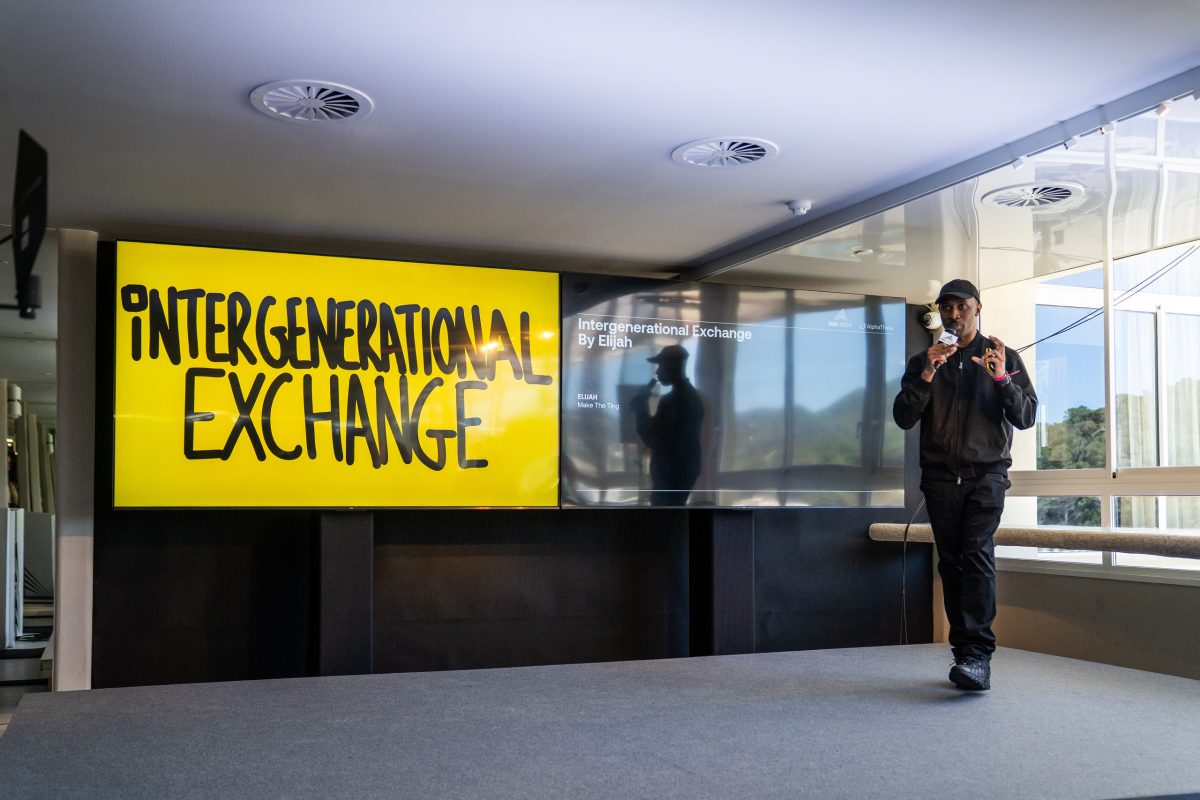
IMS Business Report 2025: Key Takeaways
The annual IMS Business Report, presented once again by MIDiA Research’s Mark Mulligan, painted a clear picture of an industry in flux. While electronic music continues to grow globally, the division between online and offline music cultures is becoming increasingly evident. Today’s “chase for numbers” — fueled by the obsession to be everywhere at once — contrasts sharply with the realities of live music, where success is rooted in personal connection, authenticity, and economic realities.
One crucial trend highlighted was the slowing overall market growth. Following a strong 2023, the global recorded music market cooled, growing by just 6% in 2024. Importantly, this deceleration was less about the music itself and more tied to wider consumer behaviors — particularly how much people are willing (or able) to spend in a tightening economy.
Streaming growth reveals a deeper divide: while subscription numbers surged by 12% to 818 million globally, revenue growth lagged behind. This reflects a market increasingly dependent on emerging economies, where user acquisition is strong but average revenue per user (ARPU) is significantly lower. It’s a dynamic that will reshape strategies across the industry in the coming years.
At the same time, music publishing surged ahead once more, outperforming recorded music in terms of revenue growth. Catalogue investments bounced back strongly, signaling sustained confidence in music rights as a financial asset, particularly among electronic artists — a trend confirmed by the doubling of electronic music catalogue deals between 2020 and 2024.
In the digital sphere, streaming remains dominant, but the nature of success is shifting. Platforms are focusing more on fan monetization at scale, as single-track downloads or physical album sales decline into niche activities.
The Global South is becoming a powerhouse: massive fan growth in markets like Mexico, India, and Brazil is not just about numbers — it’s beginning to redefine what the global electronic sound will look like. Genres like Afro House and Amapiano, rooted outside the traditional Western axis, are now at the center of innovation and cultural export.
Live events, after the initial post-Covid boom, have stabilized but with higher revenues than pre-pandemic levels — largely due to increased ticket prices rather than a rise in attendance. This reflects both growing production costs and shifts in consumer spending habits.
When it comes to geographic markets, Mexico, the UK, and Germany were the fastest-growing single markets for electronic music in 2024, while Australia and the Netherlands continue to boast exceptional consumption rates relative to their populations.
On the genre front, Beatport data confirmed the resilience of the electronic ecosystem. Genres like Drum & Bass and Afro House saw impressive climbs, reflecting a broader resurgence of niche sounds. Notably, Drum & Bass reasserted itself as a major player — not only ranking #2 among Billboard genres but also hitting #1 on Beatport multiple times in 2024.
Meanwhile, TikTok emerged as the fastest-growing platform for electronic music consumption, even outpacing indie and rap growth rates. Its #ElectronicMusic hub, launched in 2024, amplified genres from Amapiano to Trance, showcasing the social-driven future of music discovery.
SoundCloud has re-established itself as a cultural catalyst, leading the resurgence of scenes like Minimal/Deep Tech, UK Garage, and Jungle. With nearly half of its streams coming from tracks under 18 months old, SoundCloud proves to be a frontline for discovering the music of tomorrow, not just archiving the sounds of yesterday.
In terms of overall fan growth, electronic music added over 566 million new fans across Spotify, TikTok, Instagram, YouTube, and Facebook in 2024 — a slight decline compared to 2023, but still indicative of strong and steady momentum.
Live and online worlds reflect different rules: while social media prioritizes constant visibility and viral moments, the live industry relies on deeper, localized, and more economically demanding relationships between artist and audience.
Another important signal came from the catalogue acquisition market: electronic music catalogues are increasingly valued by investors, doubling their share of all deals between 2020 and 2024 — a recognition of electronic music’s long-term cultural and economic relevance.
Finally, while the report acknowledged that gender parity is still distant, it celebrated a growing share of female DJs and producers, indicating a slow but meaningful cultural shift. Platforms like AlphaTheta reported a steady rise in female account registrations, encouraging a more balanced future.
Ultimately, the 2025 IMS Business Report emphasized 4 key takeaways:
- The global electronic music industry continues to expand, reaching a total market value of $12.9 billion, up 6% year-on-year.
- A new generation of fans and creators is driving a cultural redefinition — not only reviving long-standing genres like Drum & Bass and Garage but reshaping the entire music ecosystem around community, innovation, and authenticity.
- Past and present coexist more than ever: genres like Drum & Bass show how electronic music can bridge generations, with both 16-year-olds and 50-year-olds actively engaging in the scene — making it perhaps the first truly cross-generational dance movement.
- Electronic music’s rise in the Global South is not just a trend; it’s the future. As local scenes mature, their influence on the global mainstream will be unavoidable, enriching the sonic palette of electronic music for decades to come.
DOWNLOAD THE FULL REPORT HERE
https://www.instagram.com/p/DI01i-GMk5j/?utm_source=ig_web_copy_link&igsh=MzRlODBiNWFlZA==
The Future of Radio: Why It Still Matters
In an era dominated by algorithm-driven music discovery on streaming platforms and social media, radio might seem like a relic of the past. Yet, as highlighted in the insightful panel moderated by Jaguar (BBC Radio 1 / IMS) and featuring Frankie Wells (foundation.fm), Kikelomo Oludemi (Oroko Radio), and Richard Akingbehin (Refuge Worldwide), radio remains a vital cultural incubator — perhaps more important today than ever before.
Rather than simply broadcasting music, modern radio creates a unique, almost irreplaceable magic of human connection that streaming algorithms still struggle to replicate. In a world oversaturated with digital music releases, radio offers curated experiences, emotional resonance, and community building, making it a critical space for nurturing musical movements and independent voices.
The speakers emphasized that today’s radio is evolving beyond the traditional model. Incorporating video content, interactive shows, and multi-platform experiences allows radio stations to remain competitive and relevant, especially among younger audiences who demand visual and participatory elements in their media consumption.
Ultimately, while the methods of discovery have diversified, radio’s power lies in its ability to tell stories, connect communities, and provide context — qualities that make it not just relevant, but essential, for shaping the future of music culture.
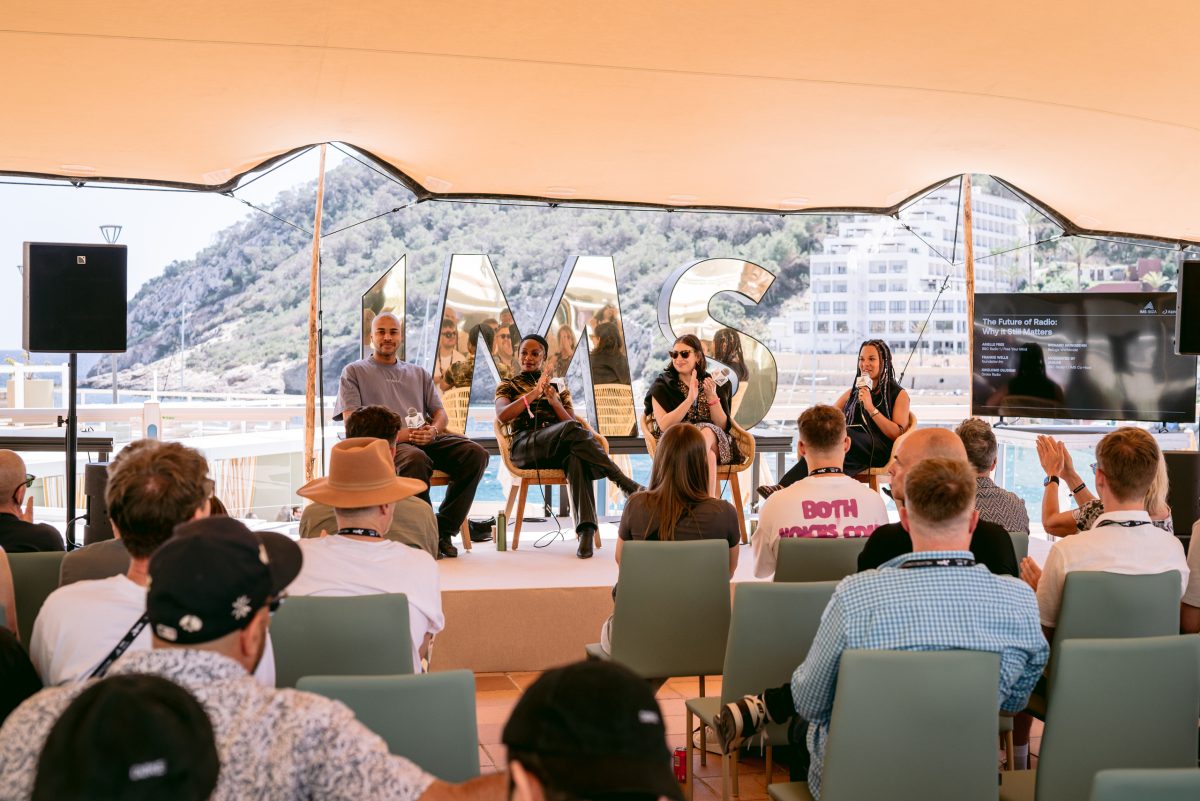
The Evolution of Afro-House: Who Benefits from the Beat?
Presented by HOMECOMING™, this session explored the rich, spiritual, and deeply human essence of Afro-House — a genre born from the rhythmic soul of South Africa’s townships and now resonating across the world’s biggest stages. Moderated by Dare Balogun (Metallic Inc.), with insights from Jackie Queens (Bae Electronica), Shimza, and Zakes Bantwini, the panel offered a powerful reflection on how Afro-House has evolved from local movement to global phenomenon.
Afro-House is a genre that is lived, not just performed. It carries an intangible, almost spiritual energy that embodies the spirit of Africa — a feeling that words alone struggle to capture. Over the years, Afro-House has been built on layers of diverse influences and experiences, but authenticity has always been its driving force.
As the genre gains international recognition and cements its place within mainstream club culture, new challenges are emerging. One key concern raised was the visibility gap: why are many of the most prominent headliners in Afro-House not African? This question underscores broader issues of representation, ownership, and cultural respect.
The current generation of Afro-House artists and managers faces a crucial task: to build a sustainable ecosystem that can thrive globally while remaining true to its roots. This involves not only protecting the musical integrity of the genre but also strengthening the business and managerial frameworks that support its artists — ensuring that Afro-House’s future growth is equitable, ethical, and firmly anchored in the communities that created it.
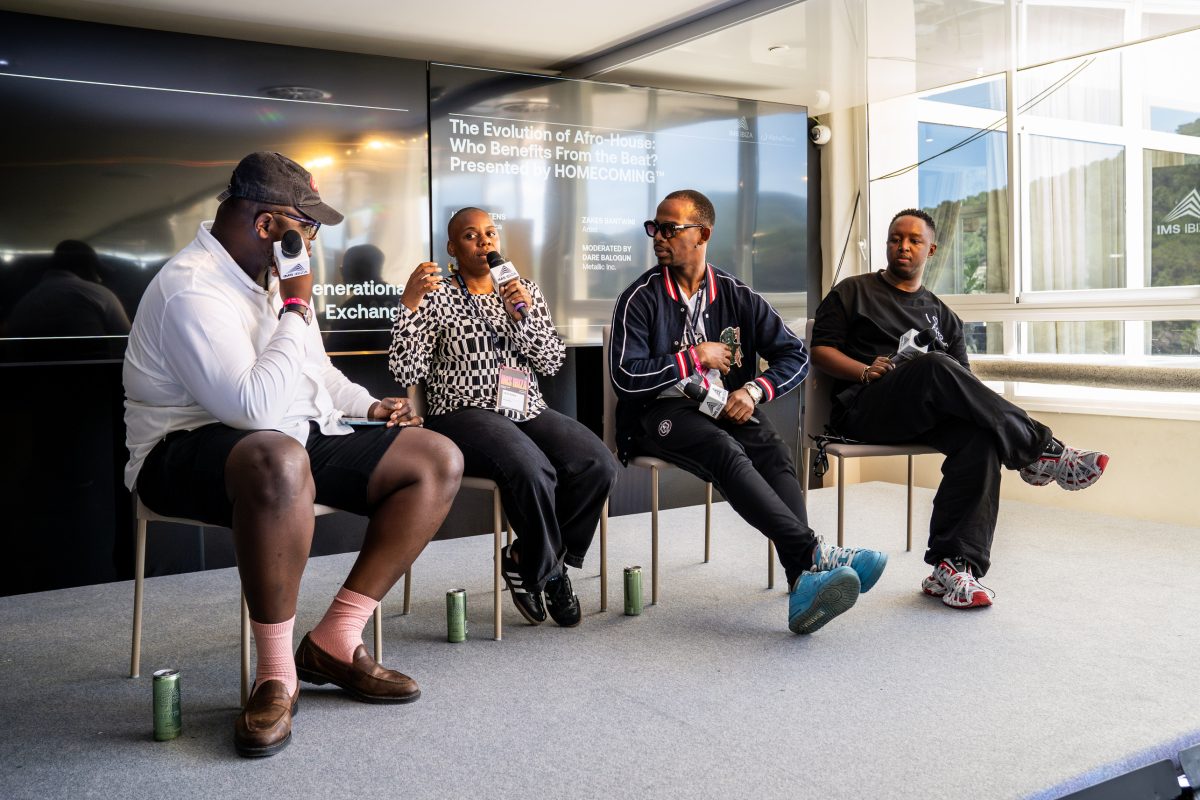
“Stand on the Rim of the Volcano – and Do Your Dance”: Movement + Music + Mental Health
In this vibrant session, moderated by Chloe Lula (Resident Advisor), Berlin-based multidisciplinary artist Patrick Mason and Paris-based choreographer Cecilia Bengolea explored the deep connections between movement, music, identity, and mental resilience.
Rhythm and movement have always been inseparable — not just through musical synchronization, but as a profound expression of emotion and selfhood. Patrick Mason, renowned for his electrifying performances and magnetic stage presence, exemplifies this fusion through his natural connection to Vogueing — a dance style where movements emulate the striking poses of fashion models. With no formal dance background, Mason blends spontaneous gestures with iconic steps drawn from 1980s pop culture and cinema, transforming his performances into an act of liberation and self-expression.
Bengolea, meanwhile, spoke of dance as “animated sculpture,” where the body becomes both object and subject — simultaneously moving and being moved. Through her work, she challenges the boundaries between performer and creation, using motion as a way to embody freedom, resilience, and artistic truth.
Together, they highlighted that movement is not just performance; it’s self-care. In the high-pressure environment of the music and entertainment world, embracing physicality as a form of creative and mental grounding is not a luxury — it’s essential. Their message was clear: to dance on the edge of the volcano is not to risk everything, but to celebrate life, in all its chaos and beauty.

A Cultural Evolution: Exploring Opportunities in the Middle East
In this dynamic IMS session moderated by Katie Bain (Billboard), leading voices from across the Middle East’s electronic music scene — including Dolly Makhoul (Believe), Edwin Harb (MDLBEAST Records), Hassan Ghazzawi (Dish Dash), Ninyaz Aziza (MDLBEAST Radio), and Timmy Mowafi (SceneNoise) — came together to discuss one of the most exciting growth stories in the global industry today.
The Middle East, once a peripheral player, is rapidly emerging as a central force in electronic music. From Saudi Arabia’s booming event scene to Dubai’s evolution into a potential “Winter Ibiza,” the region is witnessing a remarkable transformation. Key to this growth is a more strategic and collective approach: local stakeholders are not merely replicating Western models, but actively building an ecosystem that addresses past weaknesses — such as the lack of infrastructure, industry professionalism, and artist development.
Unlike other regions where rapid growth has sometimes led to fragmentation or unsustainable practices, the Middle East is consciously striving to move forward as a unified industry. Collaboration between labels, artists, event organizers, and media is fostering an environment where electronic music culture can thrive authentically and sustainably.
The consensus was clear: the Middle East is no longer just an emerging market — it is becoming a cultural powerhouse, offering not only immense opportunities for local talent but also influencing the future direction of the global electronic music industry.

Meet Team John Summit
Moderated by Katie Bain (Billboard), this session offered a rare behind-the-scenes look at one of electronic music’s most talked-about success stories: the rise of John Summit. Featuring insights from Ben Shprits and Daisy Hoffman (Wasserman Music) alongside Holt Harmon and Parker Cohen (Metatone Management), the panel revealed the meticulous strategy and resilient spirit behind Summit’s meteoric ascent.
After eight years working with John, Metatone Management reflected on the early days: from the start, there was a strong connection and a shared vision. Summit already displayed sharp instincts, not only in his dynamic DJ sets but also in his production work — there was a clear sense that he was destined for something bigger. On the booking side, the partnership with Wasserman was forged during the pandemic, initially through a mutual friend, leading to a pivotal collaboration just as the world was beginning to reopen.
One early breakthrough came with the Deep End remix, which dominated the Beatport charts for three months in 2021. Even though expectations were tempered at the time — considering the near-total shutdown of the live music world — the momentum between Metatone and John Summit quickly built into something undeniable.
Faced with uncertainty, the team leaned heavily into a carefully crafted content and release strategy, recognizing that the “right moment” had to be seized despite global challenges. Summit’s use of social media was key: by fostering a sense of immediacy and exclusivity, he leveraged the power of FOMO (Fear Of Missing Out) to cultivate a highly engaged audience. Limited-capacity events following the pandemic created a perfect storm — scarcity drove demand, and fans quickly learned that a John Summit ticket was something not to be missed.
Beyond his solo success, Summit has expanded his brand with Experts Only, which has undergone a significant rebranding to reflect a broader vision. Today, Experts Only operates not merely as a label for John Summit’s music, but as a talent incubator, signing not only established names but also emerging artists who align with the label’s evolving musical identity. By nurturing fresh talent and cultivating an inclusive musical community, Experts Only is playing a critical role in shaping the next generation of the electronic music landscape.
His collaboration project Everything’s Always with Dom Dolla further showcases his versatility and ambition to continuously evolve his live offerings.
One of the most remarkable aspects of John Summit’s rise is his cross-scene appeal: he has earned genuine respect from both mainstream festival crowds and more discerning underground audiences alike — a rare and hard-earned balance in today’s fragmented electronic music world.
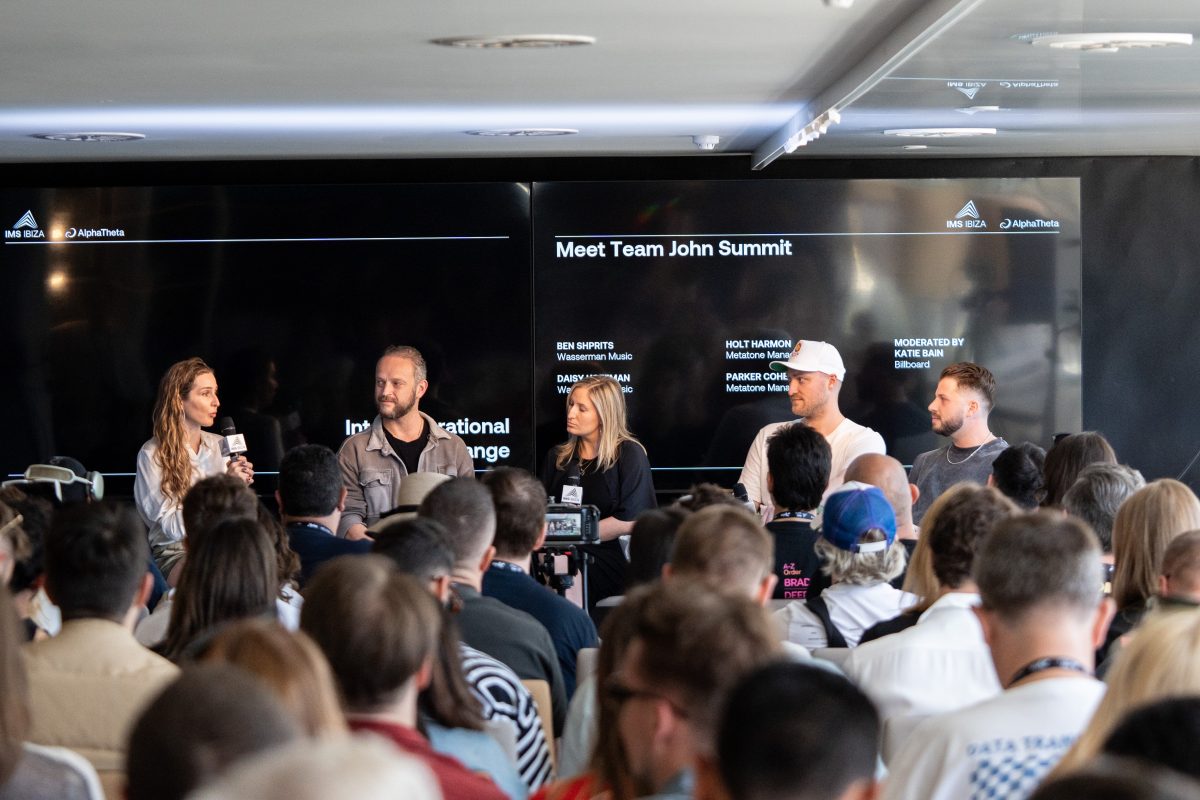
The Trans Inclusion Charter Presented by AFEM: Building a Fairer Future
Moderated by Finlay Johnson (AFEM), this deeply impactful session brought together key voices from across the electronic music community — including Jennifer Hammel (CAA), KIIMI, Samantha Togni (Boudica), Saskhia Menendez (Sassy Music Ltd), softchaos, and Sophia Kearney (HE.SHE.THEY.) — to present the Trans Inclusion Charter at IMS: a bold initiative aimed at creating safer, fairer spaces for trans and non-binary individuals across the music and creative industries.
The underrepresentation of trans and non-binary people — both on stage and behind the scenes — remains a serious issue. In recent years, rather than improving, the situation has often worsened, making the need for meaningful action more urgent than ever. The Charter is designed not just to encourage inclusivity in principle, but to demand concrete, systemic change — closing the representation gap and challenging the broader structures that allow transphobia to persist.
Crucially, speakers emphasized that electronic music as we know it would not exist without trans culture — a truth rooted not only in history, but also in the ongoing contributions of trans and non-binary creatives today. Yet, despite progress made over the past decade with more diverse PR campaigns and lineups, visibility alone is no longer enough. A deeper, sustained commitment to real structural change is essential. Inaction, neutrality, or token gestures are no longer acceptable.
Examples like Boudica were highlighted as models of good practice, combining educational initiatives with tangible financial support mechanisms, including partnerships with organizations like PRS. Money remains a significant barrier, and bridging that gap is key to creating true accessibility. Similarly, collectives like HE.SHE.THEY. are actively building inclusive spaces by embedding diversity into mainstream club and festival environments — not just special initiatives, but the heart of everyday programming.
The message was clear: involvement is no longer optional. Real solidarity requires real action — and the Trans Inclusion Charter offers a roadmap for how the electronic music industry can lead by example and drive genuine, lasting change.
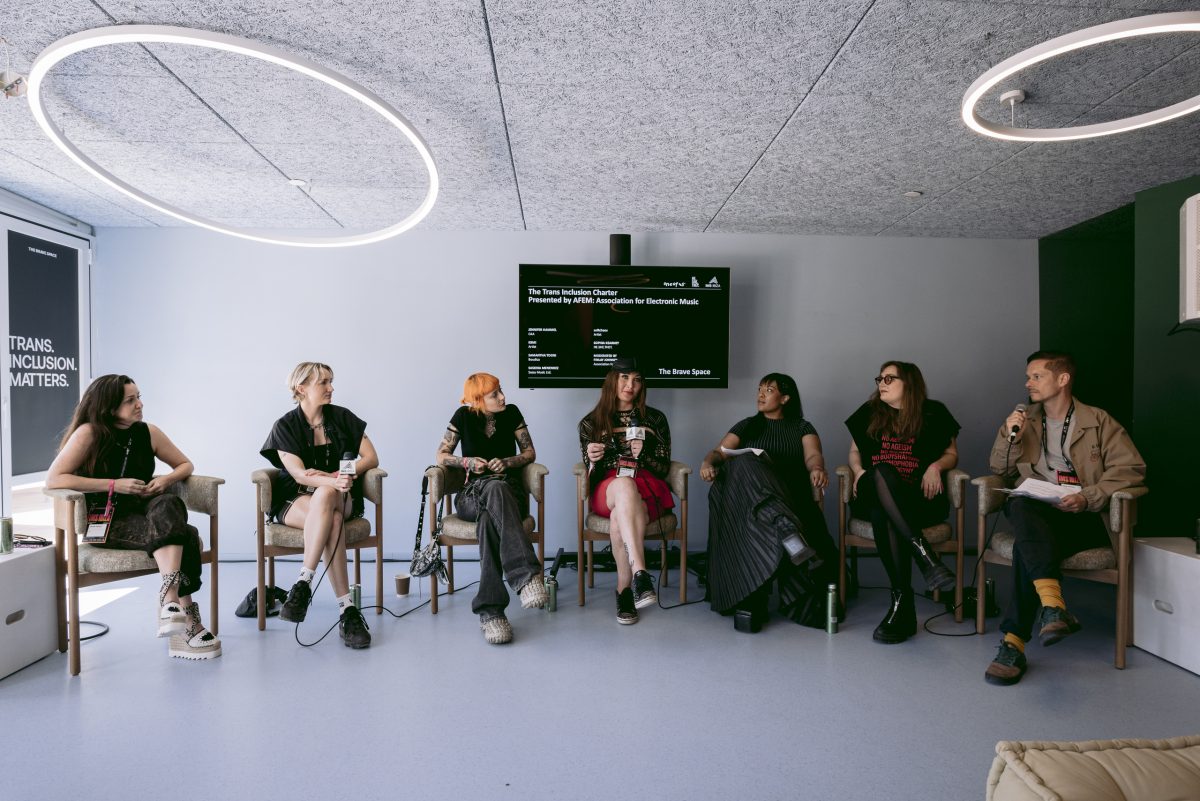
Africa Is Not a Country – The Growth of Electronic Music Across the Continent
Moderated by Kikelomo (Oroko Radio), this important IMS session delved into the vibrant and fast-evolving electronic music scenes across Africa. Featuring speakers such as Adam Tiran (Africori), EUGGY (Kenya), KMAT (South Africa), and Ronny Jagtiani (SPEKTRUM Entertainment / Talent Hub Africa), the panel highlighted both the immense opportunities and the nuanced challenges of developing the continent’s electronic music ecosystem.
For decades, Africa has been underestimated in the global electronic music conversation, despite its contributions through genres like Amapiano, Afro-House, and Afro-Tech. South Africa and Nigeria have historically led the way, but today, electronic music pulses across a wide array of regions — from Lagos to Lusaka, and beyond. However, as the speakers pointed out, deeper musical culture and understanding are still developing in many areas. Tracks are often appreciated primarily for their beat, rather than their full artistic narrative.
The African market is still emerging, with more consistent growth only beginning in the past decade. The current phase focuses on exporting African artists to the global stage — a process that requires patience, ethical engagement, and long-term infrastructure building, rather than simply importing global culture back into Africa.
Organizations like Africori, a key player in distribution and publishing, are helping lay the foundations for sustainable development. Having a physical presence on the continent is crucial for navigating local realities: from lower streaming revenues compared to other regions, to the complex negotiation of artist advances and rights management. The path is slow and challenging, but it is clear and moving in the right direction.
Gender parity was another critical point of discussion. While the representation of women in the African electronic scene is growing, there is a clear need for more women to step into production, management, and performance roles — building structured careers that can stand shoulder to shoulder with their male counterparts.
Above all, the panel emphasized that Africa holds a huge reserve of untapped talent — artists full of potential but often lacking the resources, protection, or platforms they deserve. The ultimate goal is to elevate these voices not just within Africa, but internationally, creating inclusive frameworks that recognize and nurture the incredible cultural wealth already thriving across the continent.
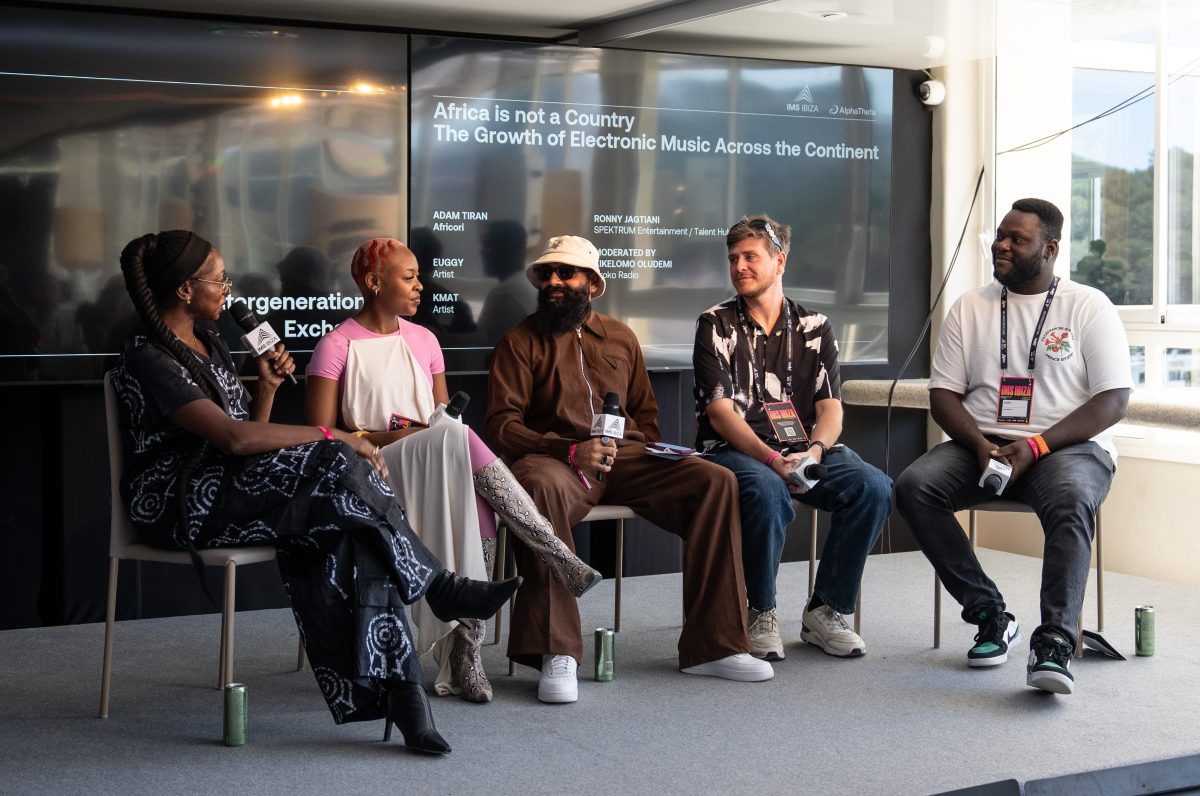
Four Decades of Jungle & Drum ‘n’ Bass: From Local to Global
Moderated by Rufy Ghazi (Audience Strategies / FairPlay), this IMS session celebrated the extraordinary journey of Jungle and Drum & Bass — genres born from the gritty, urban underground of early 1990s Britain that have since become global cultural forces. With panelists including Charlotte Kain (Spotify), Craig Dawson (Hospital Records), Duncan King (Skiddle), Ed Brew (The Beatport Group), and Maja Cicic (AEI Music), the conversation highlighted how what was once an intensely local scene has now evolved into a worldwide phenomenon.
Drum & Bass is experiencing a major resurgence, not only reclaiming its rightful place in UK club culture but also expanding its influence across the Atlantic and beyond. Tracks once seen as niche are now dominating charts, festival stages, and streaming playlists globally — signaling a shift in how the genre is perceived and consumed outside its traditional strongholds.
In markets like North America, Australia, and mainland Europe, new generations of fans are embracing the raw energy, high tempo, and emotional depth that Drum & Bass offers. This evolution is driven both by veteran institutions like Hospital Records, which continue to nurture the genre’s roots, and by platforms like Spotify and Beatport, where data shows a sharp increase in streams, downloads, and audience engagement.
Beyond consumption trends, the panel explored the vital role of fan communities: Jungle and DnB have always thrived on tight-knit scenes, where loyalty and authenticity matter. Today, these communities are not only local but global — amplified by social media, online festivals, and virtual collaborations that keep the culture dynamic and inclusive.
However, challenges remain. Maintaining the genre’s DIY spirit while scaling it globally requires a delicate balance: preserving its underground ethos while navigating commercial opportunities. The importance of regional scenes — particularly emerging hotspots outside the UK — was emphasized as key to the genre’s sustainable global growth.
Ultimately, the message was clear: Drum & Bass is no longer just a “very British” phenomenon. It is a truly international movement — one that honors its past while continuously evolving, innovating, and connecting new generations across continents.
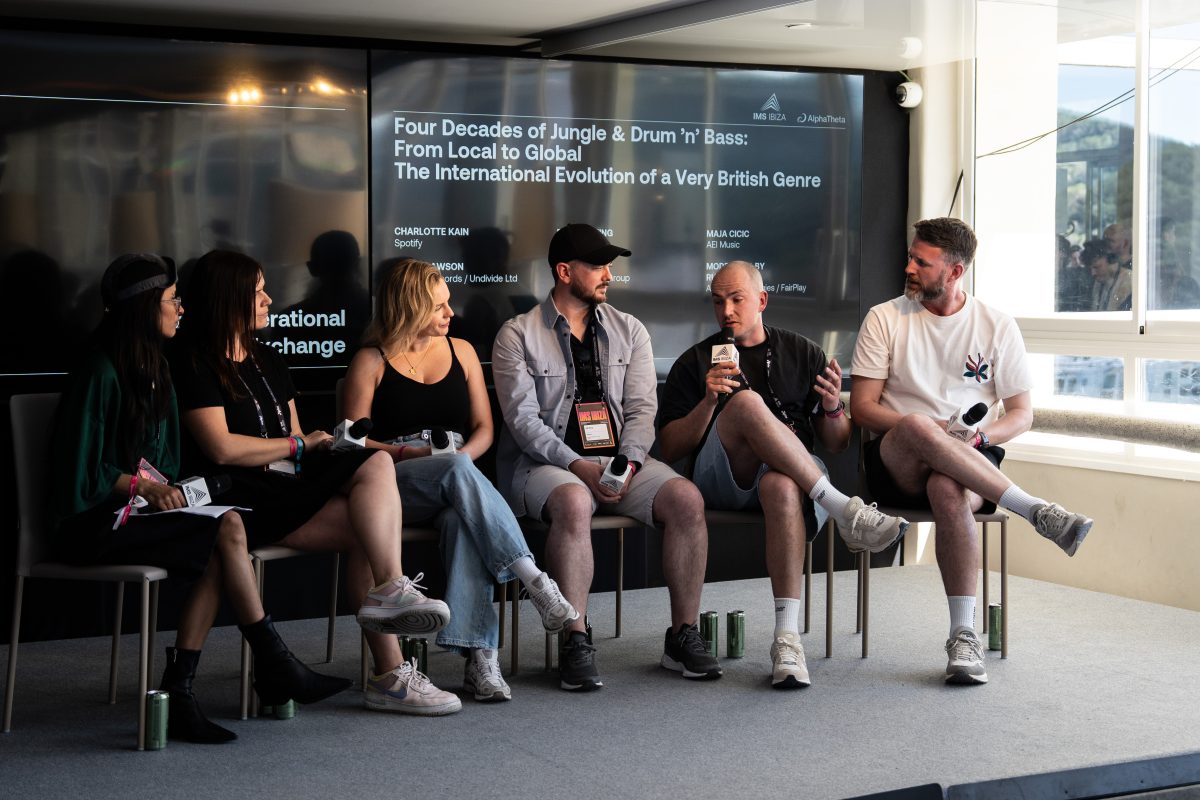
Four Decades of Jungle & Drum ‘n’ Bass: “Too Many Man, Too Many Many Man” — Gender Parity Past, Present, and Future
Moderated by Silvia Montello (Voicebox Consulting / AFEM), this candid IMS session brought together Amy Jayne (LabelWorx), MC Chickaboo, Nicola Whisky Kicks (AEI/UKF), Rosie Dent (Optimal Mass), and Sarah Cole (AEI) to tackle one of the most pressing issues in the Jungle and Drum & Bass scene: gender parity.
Historically, the road for women in DnB has been fraught with challenges — from expectations around appearance and behavior to deeper systemic biases within clubs, festivals, labels, and even media coverage. The genre’s early days, much like broader electronic music culture, were often shaped through a male-dominated lens, creating barriers that many talented women had to work twice as hard to overcome.
However, the landscape is changing — and in many ways, it’s the women who are now driving some of the most exciting developments within the scene. In recent years, female artists, MCs, promoters, and executives have not only matched but often surpassed their male counterparts in creativity, communication, and audience connection. While standout male projects certainly remain, there’s an undeniable sense that parts of the male scene have become somewhat formulaic — particularly within certain subgenres like Jump Up, where branding and conceptual diversity have occasionally stagnated.
Meanwhile, female-led initiatives are injecting new energy, new narratives, and a much-needed refresh into both the artistic and professional dimensions of Drum & Bass. Representation on lineups is improving, educational programs are expanding, and industry networks are fostering more equitable spaces — but true parity still requires active, ongoing work.
The consensus was clear: gender inclusion is not a trend — it’s the future. And if the recent momentum is any indication, the next decades of Jungle and DnB will not only be faster and louder, but more diverse, dynamic, and creatively vibrant than ever before.
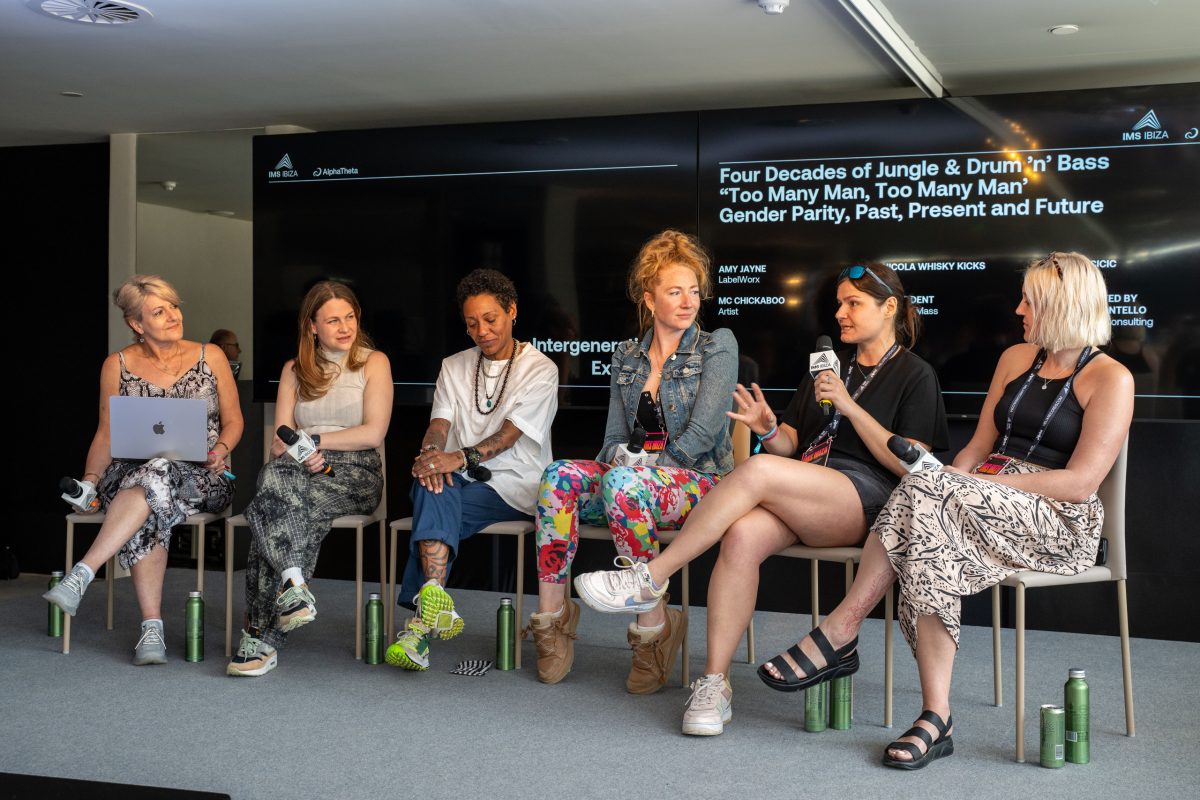
Label Profile: Make The Girls Dance
This IMS outdoor session gave an inspiring inside look at the story behind Make The Girls Dance Records, the fast-rising label founded by Hugel and driven forward with the help of label manager and A&R Juany Bravo.
Hugel’s journey is a testament to perseverance and vision. Starting from the very bottom, he worked tirelessly to carve out his place in the industry — a journey accelerated when Robin Schulz recognized his talent and helped open key doors. Now, through Make The Girls Dance, Hugel is committed to giving back: offering opportunities to new artists, regardless of their current fame or status.
For Hugel and Juany, it’s all about the music — not the name. If a track has the right energy and feeling, it deserves a platform.
This philosophy will be vividly on display during their upcoming residency at Ibiza’s Hï Club, where every artist signed to Make The Girls Dance will have the chance to perform — a major milestone for a young label with a big heart.
Further recognizing his impact, Hugel was honored at the Beatport Awards 2025, held on April 24, where he won the prestigious Best Selling Artist award — a testament to the consistency, creativity, and audience connection that have defined his rise.
Beyond the music, Make The Girls Dance is an extension of Hugel’s own personality: transparent, passionate, and relentlessly authentic. It stands as proof that in today’s hyper-competitive landscape, it is still possible to build something real — not through hype, but through consistency, belief in an idea, and love for the culture.
As the electronic music world continues to evolve, Hugel’s approach offers a blueprint for the next generation: that with passion, perseverance, and an unwavering focus on the music, it is possible to create a community, a brand, and a movement that truly reflects who you are.
https://www.instagram.com/reel/DI42JjJs9l9/?utm_source=ig_web_copy_link&igsh=MzRlODBiNWFlZA==
Intergenerational Exchange: Family to Family
In one of the most touching sessions of IMS Ibiza 2025, Kevin Saunderson — one of the foundational figures of Detroit techno — sat down with his son Dantiez Saunderson for a heartfelt conversation moderated by Farah Nanji (IMS / N1NJA).
This installment of the Intergenerational Exchange series explored not just the passing of knowledge between generations, but the deeply personal journey of handing down a living musical legacy within a single family.
Kevin shared reflections on building the very foundations of techno, while Dantiez spoke about carving out his own path — not by replicating the past, but by evolving it, respecting the roots while innovating for a new era.
Their relationship is not simply one of mentor and protégé: it is an active collaboration between two generations, working together to carry forward a culture they both deeply believe in.
Adding to the emotional weight of the moment, Kevin Saunderson was honored with the IMS Pioneer Award powered by AlphaTheta, in recognition of his extraordinary contribution to electronic music.
The award was personally presented by Ben Turner, co-founder of IMS and the visionary behind much of the summit’s global impact — further underscoring the significance of the moment.
This recognition highlighted a powerful truth: while legends shape the past, it is the continuation of their spirit through new voices — like Dantiez — that ensures the culture stays vibrant and alive.
Together, their story is a reminder that in electronic music, heritage is not static: it moves forward, evolves, and redefines itself through each new generation willing to both honor and challenge what came before.
https://www.instagram.com/reel/DI5orPqspjH/?utm_source=ig_web_copy_link&igsh=MzRlODBiNWFlZA==
IMS Dalt Vila: A Generational Celebration Under the Ibiza Sky
The summit concluded with its signature closing event, IMS Dalt Vila, once again transforming Ibiza’s iconic UNESCO World Heritage site into a panoramic stage for a genre-defying celebration of electronic music. With a focus on intergenerational energy and global reach, the lineup reflected the diverse and evolving spirit of the industry — from fresh trailblazers to legendary selectors, from soulful grooves to high-impact club sets.
Each performance embodied the very ethos of IMS 2025: connection, evolution, and the power of music across eras.
Line-up (in order of appearance):
Luxi Vilar
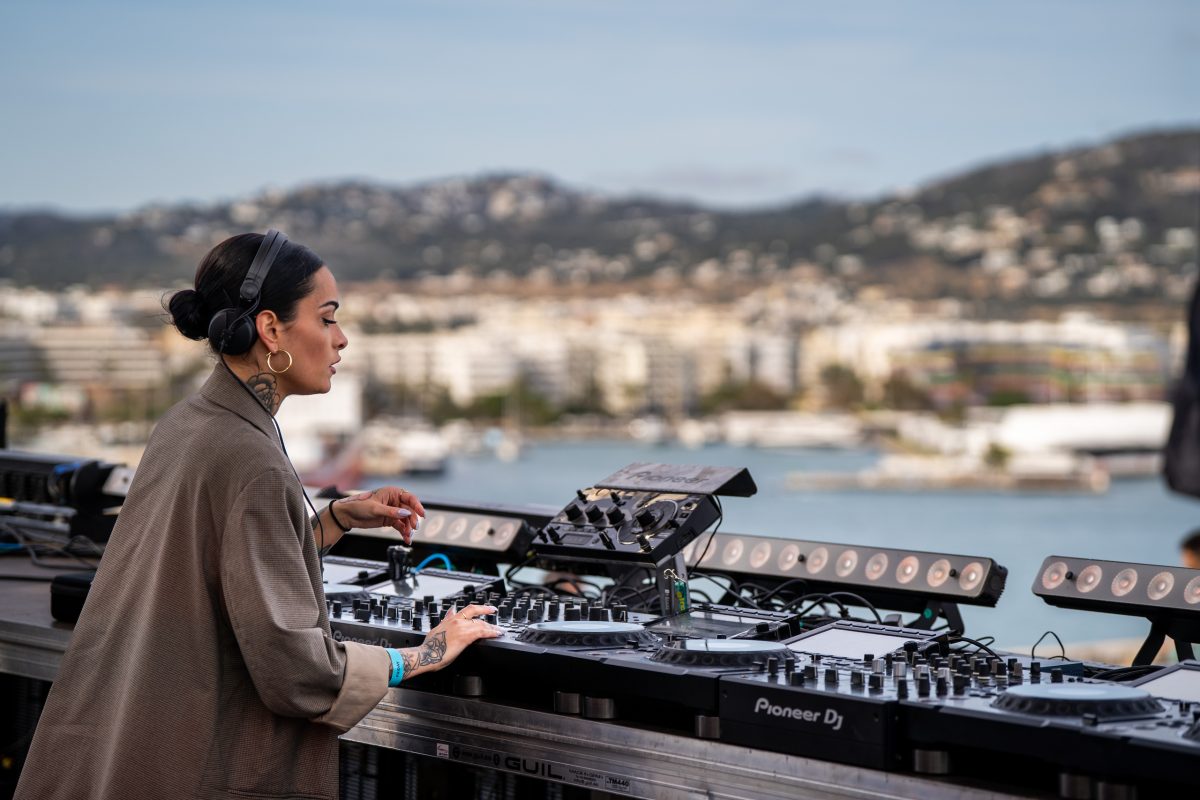
Girls Don’t Sync
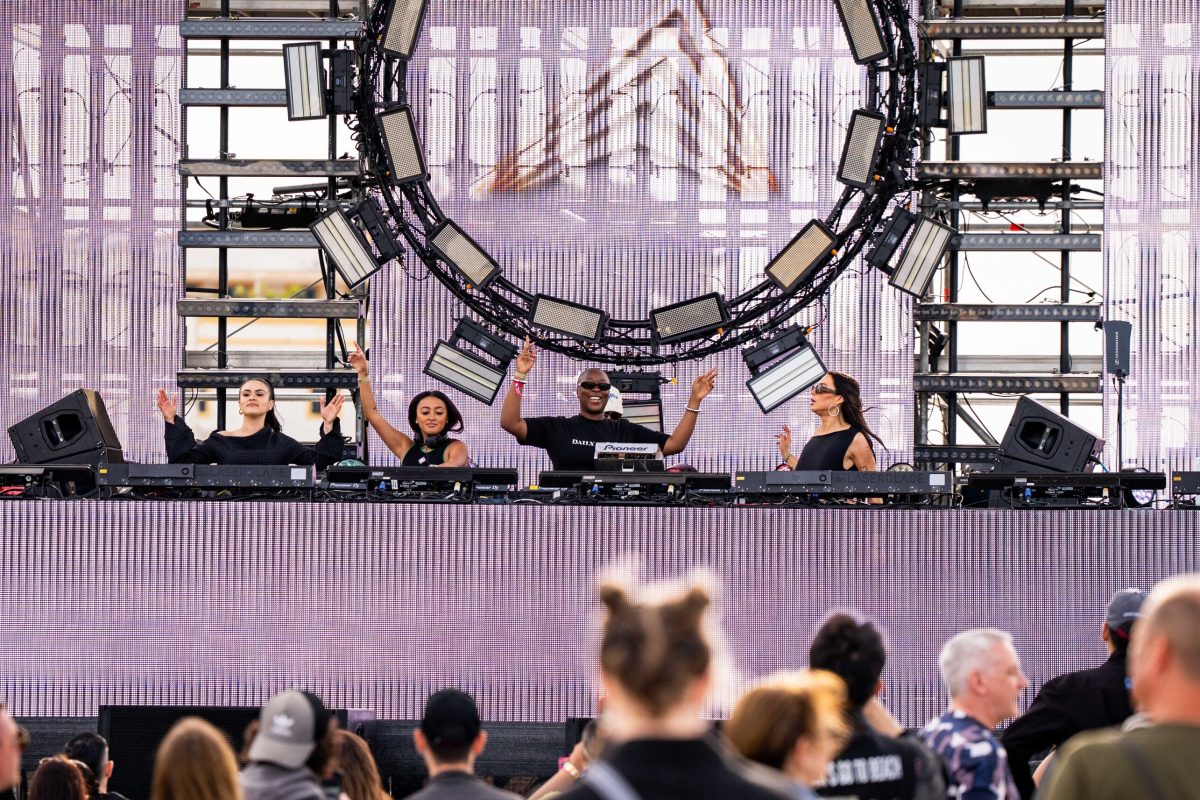
TSHA b2b Bradley Zero

Pete Tong b2b Deer Jade
https://www.instagram.com/reel/DI6SVD1MX74/?utm_source=ig_web_copy_link&igsh=MzRlODBiNWFlZA==
Korolova
https://www.instagram.com/reel/DI6XhIIsiTK/?utm_source=ig_web_copy_link&igsh=MzRlODBiNWFlZA==
Hugel b2b Major League DJz
https://www.instagram.com/p/DI6fhRaM_JY/
Paco Osuna
https://www.instagram.com/reel/DI6iesus3ka/?utm_source=ig_web_copy_link&igsh=MzRlODBiNWFlZA==
Thought it was over? Not quite.Beyond the official schedule, IMS 2025 kept the energy flowing with a series of extra parties and exclusive mixers — proving once again that in Ibiza, the summit doesn’t end when the stage goes dark. From spontaneous DJ sets to late-night networking in th e most unexpected corners of the island, the spirit of connection extended well past the agenda.
ULTRA RECORDS IMS 2025 SHOWCASE
https://www.instagram.com/reel/DI04O5-MuXy/?utm_source=ig_web_copy_link&igsh=MzRlODBiNWFlZA==
IMS Ibiza Opening Party
https://www.instagram.com/reel/DI05QhcM2yz/?utm_source=ig_web_copy_link&igsh=MzRlODBiNWFlZA==
Pete Tong DJ Academy #FutureTalent Showcase
https://www.instagram.com/reel/DI1E7XosHqE/?utm_source=ig_web_copy_link&igsh=MzRlODBiNWFlZA==
IMS Celebration: 40 Years of Jungle & DnB
https://www.instagram.com/reel/DI6uwZUsmgf/?utm_source=ig_web_copy_link&igsh=MzRlODBiNWFlZA==

Rudy (32) currently based in Bergamo, here since 2019.
https://www.linkedin.com/in/rudy-cassago-522452179/
